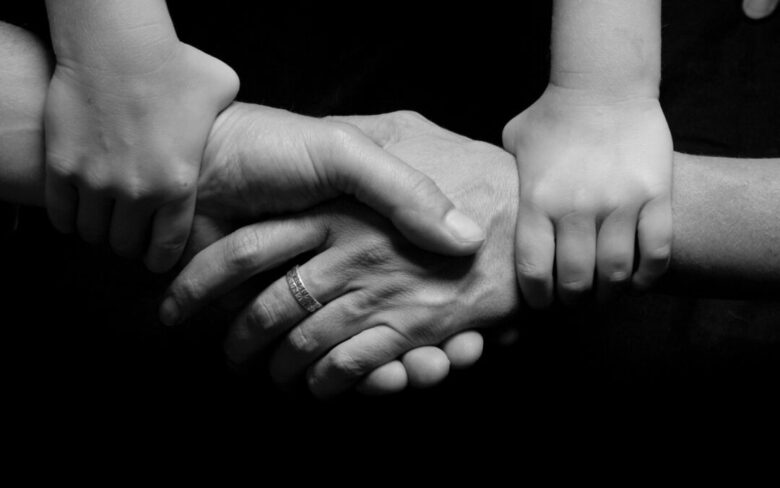Flashbacks, nightmares, and severe anxiety are some of the more commonly known symptoms of PTSD (Post-Traumatic Stress Disorder). A lesser-known symptom of PTSD is difficulty maintaining close relationships. PTSD can damage happy and healthy marriages if proper steps are not taken to prevent this from happening. To understand how this happens and ways to stop it, check out the following insights and tips.
How the “Fight-Flight-Freeze” Response Affects Close Relationships
People suffering from PTSD may not know how much their symptoms may be sabotaging their relationships. (Learn how treatment at FHE Health is helping first responders with PTSD recover faster and strengthen their marriages.)
PTSD is a mental health disorder preceded by a traumatic event (either the experiencing or witnessing of it). Exposure to trauma triggers the body’s “fight-flight-freeze” response. It’s a self-protective mechanism in the face of danger, whether real or perceived. PTSD develops when the traumatic event has ended but the body is acting as if the event is still happening in present time.
Those with PTSD are in a constant state of “fight-flight-freeze” or hypervigilance. This may cause them to misinterpret even very loving overtures from the people closest to them as threats to their emotional and/or physical safety. When someone tries to get close, they may want to protect themselves from getting hurt, by arguing or fighting, avoiding their loved one, and/or shutting down in emotional withdrawal.

Distrust of Others After Trauma
Having healthy, intimate relationships requires a lot of trust and a willingness to be vulnerable. One problem with PTSD, however, is that it can result from one or more experiences of painful and traumatic betrayal by others—often close loved ones. For the individual with PTSD, these experiences of betrayal, if not addressed and healed, may develop into the false worldview that everyone close to them will betray them; and this alteration of relationships is another symptom of PTSD.
Other PTSD Symptoms That Can Hurt Marital Relationships
Other PTSD symptoms that can negatively affect marital relationships include:
- feelings of hopelessness about the future
- feelings of detachment from others
- self-destructive behaviors
- irritability/angry outbursts
- and overwhelming guilt or shame
As challenging as they might be, these many relationship-altering symptoms of PTSD do not have to destroy relationships. Here are some ways to stop letting PTSD sabotage your marriage.

Mindfulness
Practice mindfulness. PTSD keeps people stuck in the past rather than present in the moment. Put away any distractions that take away from being present to one another in the here and now. Turn off the television and power down that cell phone, as well as all social media apps.
Next, use direct eye contact to give one another full attention. Stay focused on what the other person is saying. Look into their eyes—”the window of the soul”—to see the loving care there (rather than a false reflection of ill will). Try to notice the small facial details: maybe their lips turned up in a smile, the freckles dotting their skin, or the laugh lines crinkling just under their eyes. Feel the warmth of their touch or the softness of their skin.
The temptation may be to put up a guard, run away, or ignore the other person. Try instead to stay present to one another.
Connecting in Conversation
Spend time building connection by talking and listening to each other. PTSD causes detachment and disconnection from others. To connect more deeply with a spouse, lay aside irrational thoughts of emotional danger or fears of being betrayed. Ask questions about how they are feeling, what they are thinking about, or what life experiences they have been through.
Experiment with self-disclosure, by sharing one thing that your spouse may not be aware of. Be vulnerable in sharing what PTSD symptoms you may be experiencing and what trauma may have triggered the PTSD.

Addressing a Substance Abuse Problem
One symptom of PTSD can be self-destructive behaviors like binge or heavy drinking or abusing medications. The feelings of hopelessness with PTSD—and the lack of interest in activities that once gave pleasure, general deficit in positive emotions, etc.—can mirror symptoms of depression.
Alcohol is a depressant and further exacerbates PTSD. When someone with PTSD attempts to connect with others through social drinking, this can have the opposite effect of disconnection and disengagement. Other PTSD symptoms, such as feeling emotionally numb and difficulty sleeping, are also often exacerbated by opioid pain medications (and opioid abuse especially).
Seeking Help
PTSD may require help from a mental health counselor or psychiatric provider. Intrusive thoughts and memories from the traumatic event are difficult to manage without professional help. Mental health professionals can help educate patients about the impact of trauma on the mind, body, and spirit. Trauma interventions like EMDR (Eye Movement Desensitization and Reprocessing) can help resolve suppressed emotional issues. EMDR not only helps to erase traumatic memories but provides grounding techniques to help calm the nervous system.

Practicing Spirituality
Much of my own experience with PTSD has been as a therapist to first responders. Many first responders have complex PTSD due to chronic exposure to trauma from their jobs. Research into first responder treatment outcomes shows that a spiritual foundation is a protective factor in preventing PTSD from getting worse.
This insight can help others with PTSD, too (not just first responders). Find some spiritual practices that cultivate connection with God, the universe, and/or a higher power. Meditation dissolves divisions and heals disconnections. Spirituality also helps improve trust. That in turn can help to break down any barriers that are obstacles to healthy intimacy in a marriage.
This article was provided by Dr. Sachi J. Ananda, PhD, LMHC, MCAP, who directs a treatment program for first responders at the national behavioral health provider FHE Health and is a resource for news outlets like USA Today on sex, relationship, and addiction issues.

